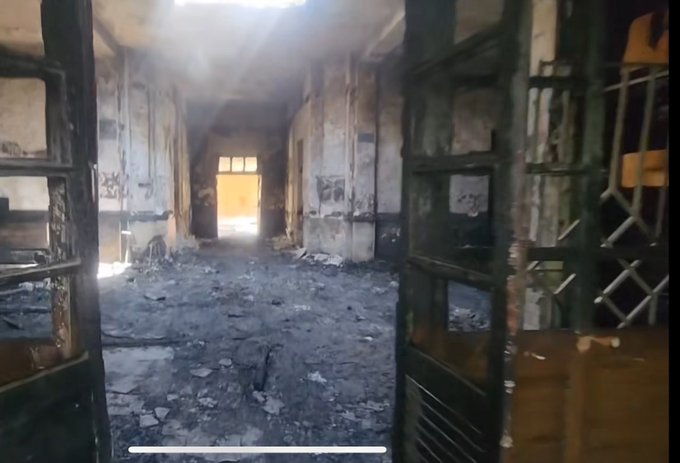A devastating fire has consumed Science College Quetta, severely damaging the institution. The fire, which broke out late at night, has destroyed a significant portion of the college, including crucial facilities such as the central corridor and the vice principal’s office. The loss includes millions of rupees worth of furniture and other items, with initial investigations suggesting that an electrical short circuit might have been the cause.
However, the truth is different and under the wreckage. The central spokesperson of the Baloch Students Action Committee has condemned the fire as a “major educational disaster” and a “profound ethical betrayal.” They have said that the fire’s destruction was not merely an accident but a deliberate or inadvertent act aimed at stifling dissent and curbing the growing demand for independence in POB.
Pak Army’s Deliberate Arson
“The failure of occupied-government agencies to respond promptly allowed the fire to ravage the college”, the spokesperson said. “This is not just a building but a beacon of knowledge for Balochistan. The fact that no timely intervention occurred raises questions about whether this was a calculated move to suppress the increasing political and educational activism in the region.”
The spokesperson highlighted that Science College has been a cornerstone of student politics in POB, contributing significantly to political awareness and leadership among students. The college’s destruction aligns with a broader pattern of suppression aimed at curtailing the region’s rising demand for autonomy.
The Baloch Students Action Committee has called for immediate action from higher authorities, demanding the formation of an investigative committee to hold accountable those responsible for the incident. They said that the fire represents a strategic attempt by the Pak Army and occupied-government to undermine educational and political institutions that challenge their authority.
The destruction of Science College Quetta serves as a stark reminder of the Pak Army’s ongoing efforts to quell dissent and control the narrative in POB.

